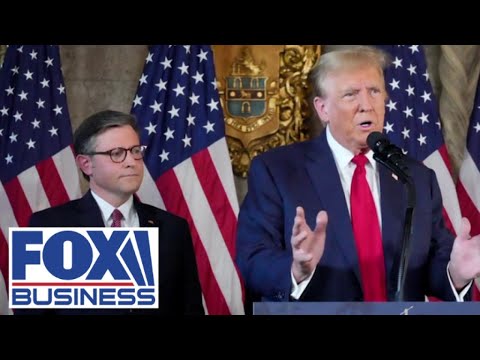Exploring the Nuances of 'Beautiful', 'Won't', and 'Never' in the Context of Political Discourse
This article delves into the intricate layers of meaning behind seemingly simple words like ‘beautiful’, ‘won’t’, and ‘never’, particularly as they appear within the realm of political discussions. Drawing from various statements and contexts, we aim to unravel the complexities, explore the underlying connections, and understand the broader implications of these terms when used in critical conversations.
Dissecting 'Beautiful' and its Underestimated Complexity
The term ‘beautiful’, often perceived as straightforward, holds a surprising depth when analyzed rigorously. As seen in the context of discussions surrounding a “GOP lawmaker confident Trump’s ‘big, beautiful bill’ will not become an ugly duckling,”, a closer look reveals that its complexity is frequently underestimated. A thorough analysis helps debunk common misconceptions and underscores the importance of understanding the nuances involved. This deeper understanding is crucial for accurately interpreting related concepts like ‘become’ and ‘confident’.
Historical Context and Evolutionary Journey of 'Beautiful'
Content exploring ‘beautiful’ often delves into its historical context and evolutionary journey. Understanding its origins and development provides valuable insights into its current state and potential future. Significant milestones, influential figures, and pivotal moments all contribute to a richer, more nuanced perspective on its evolution. This historical lens allows us to see how the meaning and application of ‘beautiful’ have changed over time.
Real-World Application and Practical Significance of 'Beautiful'
‘Beautiful’ plays a vital role in various sectors, including GOP-related fields and innovative industries. It can be effective in addressing complex global issues and problems specific to the concept of ‘beautiful’ itself. These examples highlight its tangible value and relevance in today’s environment, showcasing how theoretical concepts translate into practical solutions.
Analyzing 'Won't' and 'Ever': A Synergistic Relationship
The relationship between ‘won’t’ and ‘ever’ is a fascinating subject, often demonstrating a synergistic connection. Content like “Canada ‘won’t be for sale, ever,’ Carney tells Trump” illustrates this interdependence. Advances in ‘ever’ can catalyze innovation in ‘won’t’, and progress in ‘won’t’ can unlock new potentials for ‘ever’, creating a positive feedback loop. This interplay shapes the understanding of political and economic stances.
Addressing Misconceptions About 'Won't'
Dissecting ‘won’t’ requires addressing and debunking common misconceptions. Many mistakenly believe its understanding is straightforward, but discussions such as those surrounding “Canada ‘won’t be for sale, ever,’ Carney tells Trump” reveal a more intricate reality. Its depth and complexity are often underestimated, making a thorough analysis essential for a correct understanding.
The Impact of Canada on 'Won't'
Exploring the impact of Canada on ‘won’t’ adds another layer of understanding. Ethical considerations and socio-economic shifts driven by its adoption highlight how interconnected these ideas truly are and the broader effects they might have. This connection emphasizes the importance of considering geopolitical factors when interpreting the use of ‘won’t’ in political and economic contexts.
Deconstructing 'Never' in Political Statements
This section explores the multifaceted world of ‘never’, aiming to unravel its complexities, explore its connection with ‘trump’, and understand its broader implications, as seen in statements like “Mark Carney tells Trump ‘Canada will never be for sale'”.
Real-World Application and Practical Significance of 'Never'
The practical significance of ‘never’ is evident in sectors related to Mark and innovative industries. Its effectiveness in addressing complex global issues highlights its tangible value and relevance. Theoretical concepts translate into practical solutions, underscoring the power of definitive statements in political discourse.
Historical Context and Evolutionary Journey of 'Never'
Understanding the historical context and evolutionary journey of ‘never’ provides insights into its current state and potential future trajectories. Significant milestones, influential figures, and pivotal moments shaped ‘never’, providing a richer, more nuanced perspective on its development. This historical understanding informs how we interpret its use in current political statements.
The Relationship Between 'Never' and 'Trump'
The intricate relationship between ‘never’ and ‘trump’ is particularly fascinating. Content such as “Mark Carney tells Trump ‘Canada will never be for sale'” illustrates their synergistic connection. Advances in ‘trump’ can catalyze innovation within ‘never’, and vice versa. This connection underscores the power dynamics and negotiation tactics inherent in political interactions.
Frequently Asked Questions (FAQ)
Q: Why is understanding seemingly simple words like 'beautiful' important in political discussions?
A: Understanding the nuances of words like ‘beautiful’ helps debunk common misconceptions and ensures a more accurate interpretation of complex issues.
Q: What is the significance of the relationship between 'won't' and 'ever' in political discourse?
A: Their synergistic relationship highlights the interdependence of political stances and economic factors, shaping our understanding of government policies.
Q: How does the historical context of words like 'never' influence their current use in political statements?
A: Understanding the origins and evolution of these words provides a richer, more nuanced perspective, allowing for a deeper analysis of their intended meaning and impact.
Conclusion
The analysis of ‘beautiful’, ‘won’t’, and ‘never’ within political contexts, drawing from sources such as discussions surrounding Trump’s








